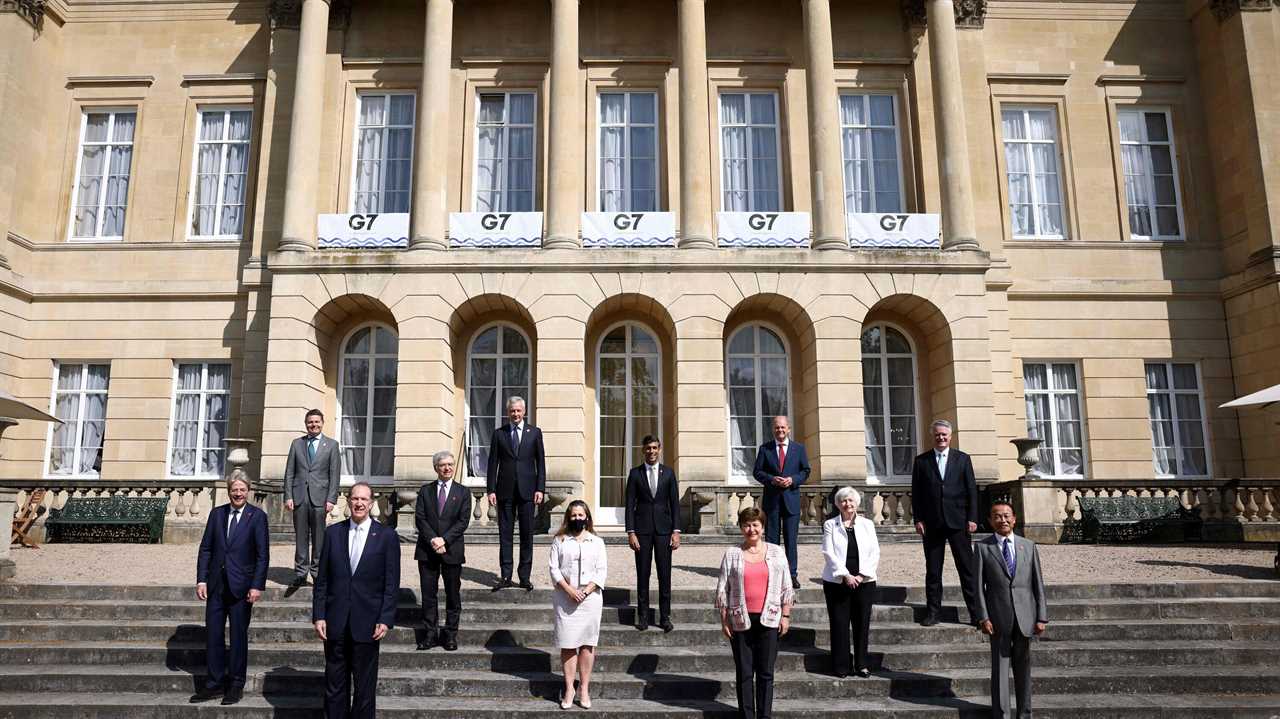
LONDON — The top economic officials from the world’s richest economies reached a breakthrough on Saturday in their yearslong efforts to overhaul international tax laws, unveiling a broad agreement that aims to stop large multinational companies from seeking out tax havens and force them to pay more of their income to their governments.
Finance ministers from the Group of 7 nations described the pact as a historic moment that could reshape global commerce and solidify public finances that have been eroded after more than a year of combating the coronavirus pandemic. The deal comes after several years of fraught negotiations and, if enacted, would reverse a race to the bottom on international tax rates. It would also put to rest a fight between the United States and Europe over how to tax big technology companies.
Rishi Sunak, Britain’s chancellor of the Exchequer, announced the agreement and hailed a pact that would make a fairer tax global tax system that was “fit for the digital age” and that would ensure “the right companies pay the right tax in the right place.”
? At the @G7 in London today, my finance counterparts and I have come to a historic agreement on global tax reform requiring the largest multinational tech giants to pay their fair share of tax in the UK.
— Rishi Sunak (@RishiSunak) June 5, 2021
?The thread below explains exactly what this means. #G7UK pic.twitter.com/HdcK1HuM91
After two days of talks at the Group of 7 summit in London, the countries agreed to back a new global minimum tax rate of at least 15 percent that companies would have to pay regardless of where they locate their headquarters.
The agreement would also impose an additional tax on some the largest multinational companies, forcing technology giants like Amazon, Facebook and Google to pay taxes to countries based on where goods or services are sold, regardless of whether they have a physical presence in that nation. Mr. Sunak said that global companies with profit margins of at least 10 percent would face the tax and that 20 percent of any profit above that margin would be reallocated and then subjected to tax in the countries where they make sales.
While the agreement is a major step forward, many challenges remain. Next month, the Group of 7 countries must sell the concept to finance ministers from the broader Group of 20 nations that are meeting in Italy. If that is successful, officials hope that a final deal can be signed by Group of 20 leaders when they reconvene in October.
Treasury Secretary Janet L. Yellen described the agreement and “significant” and “unprecedented” in a statement that focused on the global minimum tax.
“That global minimum tax would end the race to the bottom in corporate taxation, and ensure fairness for the middle class and working people in the U.S. and around the world,” Ms. Yellen said. “The global minimum tax would also help the global economy thrive, by leveling the playing field for businesses and encouraging countries to compete on positive bases, such as educating and training our work forces and investing in research and development and infrastructure.”
The Group of 7 delegations, which represent Britain, Canada, France, Germany, Italy, Japan and the United States, negotiated late into Friday to hash out details of how the new tax systems would work and the language in the statement.
Did you miss our previous article...
https://trendinginthenews.com/usa-politics/at-once-diminished-and-dominating-trump-prepares-for-his-next-act






